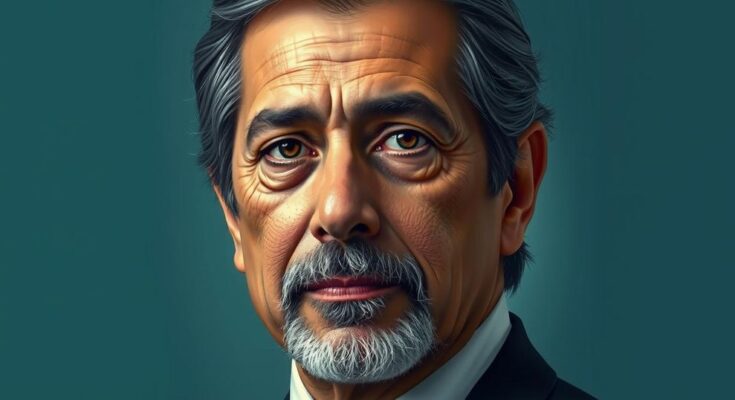Yamandu Orsi has been elected as Uruguay’s next president, winning a run-off election with 49.8 percent of the vote. A former teacher and mayor, Orsi is aligned with the left-wing Broad Front and is seen as a political successor to ex-President Jose Mujica. His campaign emphasizes addressing homelessness, poverty, and crime, aiming for a balanced approach to growth and social welfare as he prepares to take office in March.
Yamandu Orsi has emerged as Uruguay’s next president, having won a recent run-off election with 49.8 percent of the vote against Alvaro Delgado, who received 45.9 percent. Orsi, representing the left-leaning Broad Front, succeeds a conservative administration and is seen as the political heir to former President Jose Mujica. His platform focuses on addressing pressing issues such as homelessness, poverty, and rising crime rates, promising a balanced approach to economic growth and social welfare.
Born on June 13, 1967, in Canelones, Uruguay, Orsi has been a prominent figure in the political landscape. With a background as a history teacher and previous mayor of Canelones, he began his political journey during Uruguay’s dictatorship, aligning himself with Mujica’s Popular Participation Movement. His campaign emphasized modernizing leftist policies to tackle national issues effectively, particularly those that disproportionately affect vulnerable populations.
Orsi’s victory represents a significant political shift in Uruguay, embracing a center-left governance model after years of conservative leadership. His administration will take office in March and is expected to continue practices reminiscent of Mujica, including an aversion to living in the presidential residence. Orsi’s grassroots campaigning style and connection to the electorate through personal narratives are notable traits that resonate with many voters, though he has faced criticism for his lack of detailed policy proposals and limited media engagement during the campaign.
In his victory speech, Orsi articulated a vision for national dialogue to foster cooperation and bridge partisan divides. He aims to attract investors and improve economic conditions without resorting to tax increases, intending to position Uruguayan growth favorably in the global economic landscape. With a commitment to humane governance that prioritizes citizen welfare, his ascendance to the presidency brings with it expectations for real change in addressing the social challenges faced by Uruguayans today.
Yamandu Orsi’s rise to the presidency of Uruguay is significant as it reflects a broader trend in South American politics favoring left-oriented leaders. Orsi’s close association with the revered former President Jose Mujica lends him credibility among leftist constituents. The backdrop of his political career, shaped significantly by Uruguay’s past dictatorship, informs his leadership style and policy priorities today. His focus on social issues like crime and poverty showcases a shift back to leftist governance after a conservative period, emphasizing responsiveness to citizens’ needs within a stable economic framework.
Yamandu Orsi’s election as Uruguay’s next president marks a pivotal moment as the country shifts back to a center-left administration. His commitment to tackling homelessness, poverty, and crime, while emphasizing national dialogue and economic growth, reflects the priorities of a populace eager for change. With his personal style and political heritage linked to the iconic Mujica, Orsi’s presidency is poised to navigate the complexities of modern governance in Uruguay, addressing both social and economic challenges head-on.
Original Source: www.aljazeera.com




